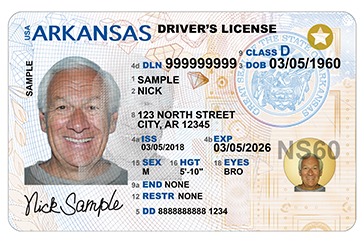Overview of Arkansas ID scanning laws
Arkansas has 4 laws which we consider relevant to ID verification, in addition to other laws which may related to age verification, identity verification, KYC, privacy, and biometrics.
Can you scan IDs in Arkansas?
Yes. Arkansas law does not regulate a business’s practice of scanning IDs.
Can you save data from a scanned ID in Arkansas?
Yes. There are no current laws which limit or restrict saving data from a scanned ID in Arkansas.
Does Arkansas offer affirmative defense for ID scanning?
No. Arkansas does not offer affirmative defense for ID scanning.
What types of IDs does Arkansas issue?
Arkansas issues drivers licenses and state IDs, including REAL ID, and CDLs. Arkansas does not issue non-domiciled CDLs. An Arkansas mobile ID is live in Google Wallet.
Individual Arkansas ID verification laws
ID scanning for alcohol sales
Arkansas provides an affirmative defense for alcohol sales to a minor if the minor presents a fake ID.
Age verification for alcohol delivery
Arkansas requires that merchants record the drivers license information of any buyer who receives a delivery of alcoholic products.
ID verification for precious metals
Precious metals dealers in Arkansas are required to record information from the buyer and seller’s photo ID.
ID scanning for scrap metal sales
Arkansas requires that scrap metal sellers maintain a photocopy of the seller’s ID.
Age verification for adult websites
Arkansas requires that adult websites verify the age of their users by confirming their identity documents. Enacted 8/2023
Age verification for social media
In 2023, the Arkansas legislature proposed a bill that would have required age verification for use of social media sites.
Data privacy laws in Arkansas
The Arkansas Personal Information Protection Act requires entities that collect personal information to use reasonable security procedures and practices to protect such information. Additionally, the law mandates that in the event such information is compromised, the entity must notify the affected individuals in a timely manner. Notification to individuals whose personal information has been compromised allows them to take steps to mitigate the potential misuse of their information.
The Arkansas Personal Information Protection Act was recently amended to require that a breach be reported to the Arkansas Attorney General if the breach affects the personal information of more than 1,000 individuals and the reporting entity determines that there is a reasonable likelihood of harm to consumers.



